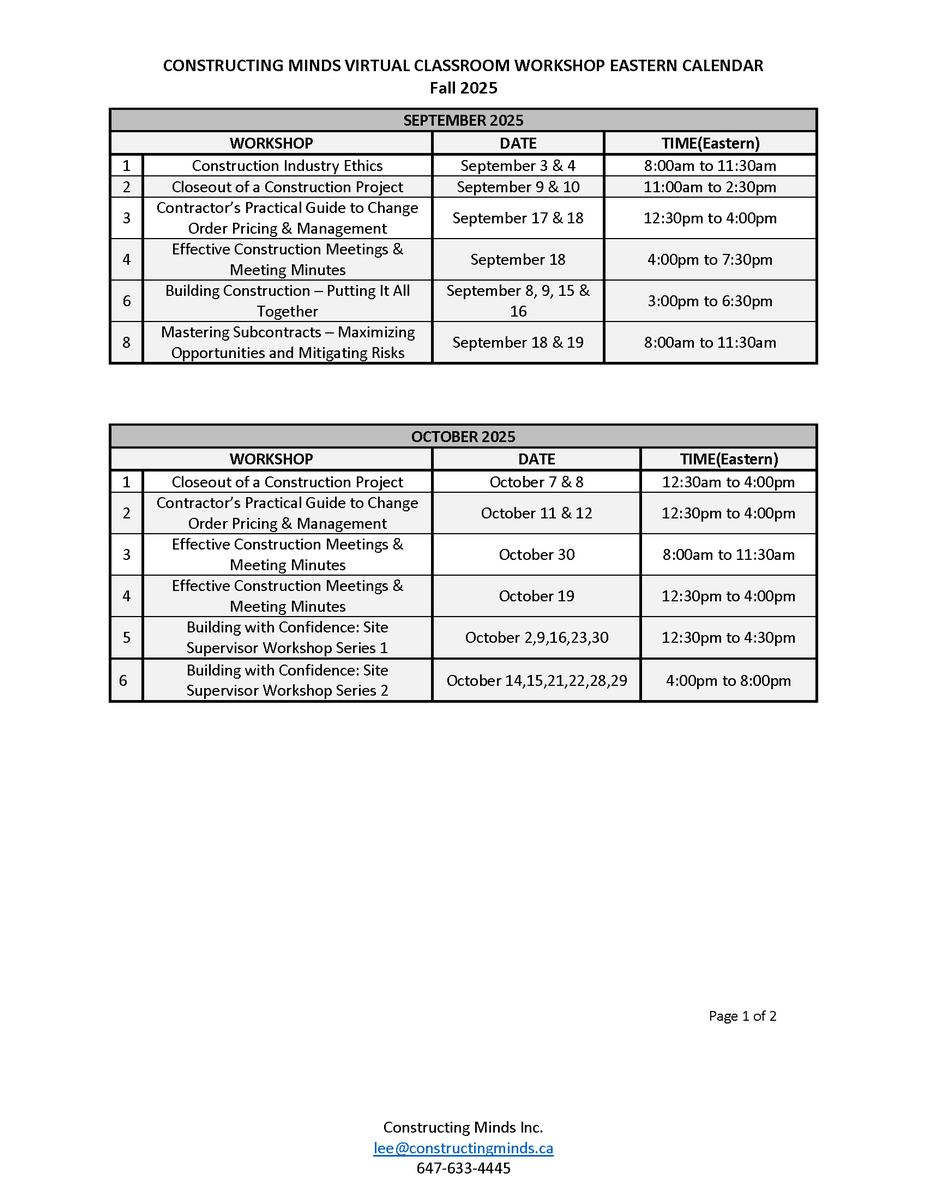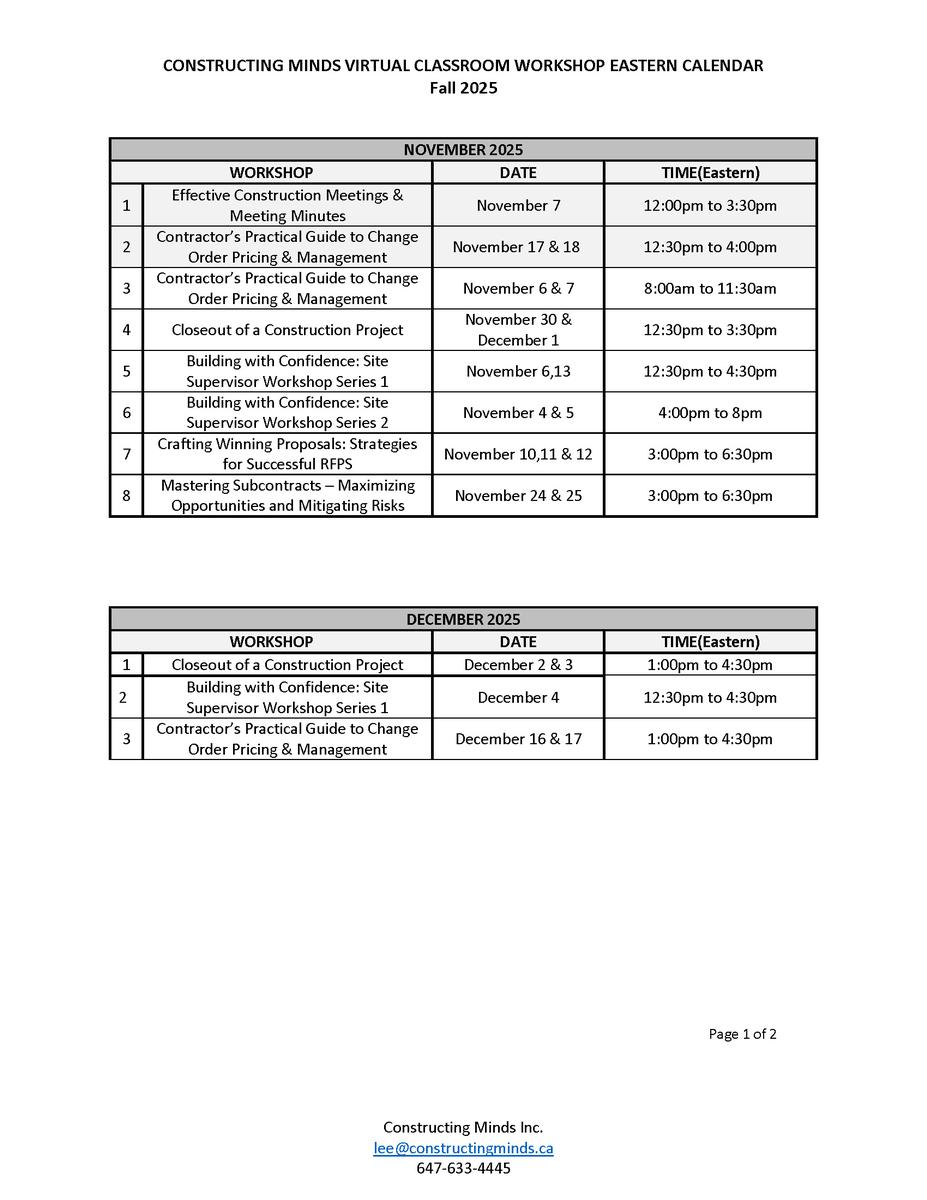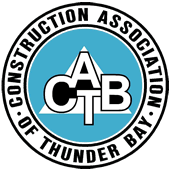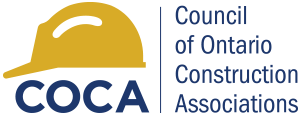CONSTRUCTING MINDS TRAINING
CONSTRUCTING MINDS is an authorized and approved trainer by the Construction Association of Thunder Bay (CATB).
To REGISTER for any of the courses below, please contact CATB.
Last updated: June 23, 2025


ABOUT THE INSTRUCTOR: Lee Kelly
.jpg)

Lee Kelly, M.A.A.T.O., P.GSC. With over 30 years of construction management experience under her belt, Lee has gained extensive knowledge and a solid foundation in construction practices, processes, and procedures. Lee was recently awarded The Construction Institute of Canada (TCIC) Chancellor's Award of Excellence.
https://www.constructingminds.ca/


